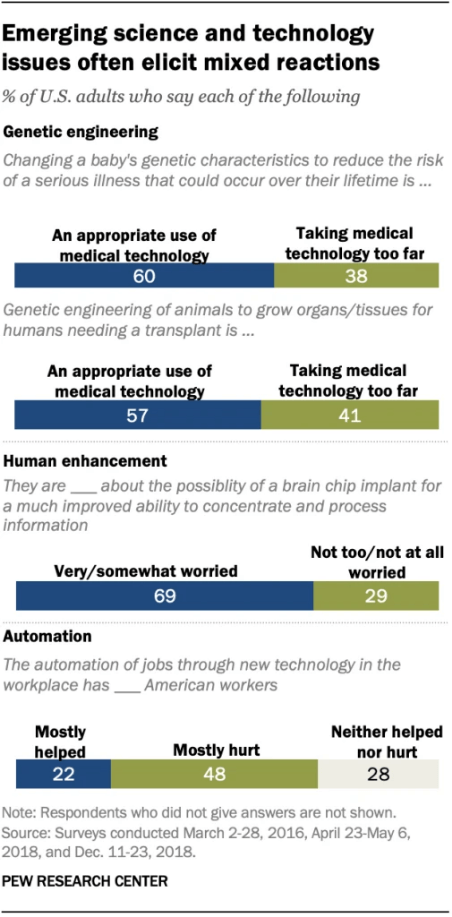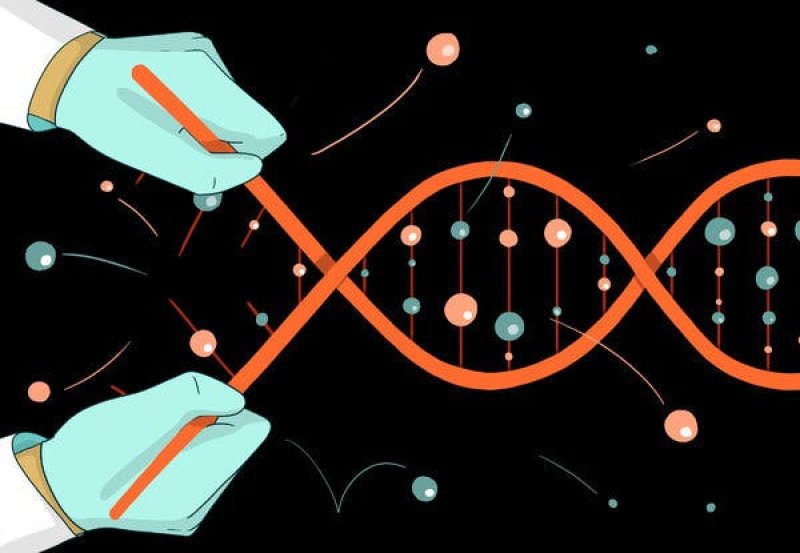The Pew Research Center published a fascinating roundup of studies that revealed the opinions of the U.S. public on a number of key science-related issues. The researchers wanted to find out what people thought overall about the role of science and scientists in society, but also to see more specifically how far modern humans are willing to go with genetic engineering and automation.
The responses show that people are generally not as worried as you’d think about messing with human genetics but when it comes to implanting technology to enhance bodies, doubts proliferate. A strong uneasiness also pervades responses dealing with robots in workplaces.
…
The Pew Research Center, which carried out the study, pinpointed a specific theme in the findings, citing “the loss of human control, especially if such developments would be at odds with personal, religious and ethical values” as the key source of hesitancy when people think about future technologies. Proposals that give people more control over tech met with more positive response.
































